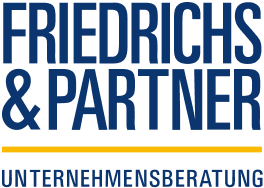Alongside artificial intelligence and other technical tools, executive search inherently relies on direct human-to-human interaction.
In order to differentiate from artificial intelligence (AI), we refer to the "genuinely human process" of executive search / recruitment consulting as human interaction (HI).
In executive search/recruiting, HI plays the complementary counterpart to AI.
Artificial Intelligence (AI)
In the "War for Talent," AI helps automating routine tasks and accelerating the recruiting process.
AI-suitable tasks cover all pre-contact activities until the initiation of the first personal interaction with candidates.
These tasks include:
MARKET ANALYSIS
AI can research and analyze the market to understand trends, salary levels, and industry-specific requirements, helping consulting clients in defining realistic requirements for executive positions.
CREATION OF JOB DESCRIPTIONS/REQUIREMENTS PROFILES
AI can generate job descriptions and requirements profiles based on market and company information.
JOB POSTING CREATION
Using job descriptions and company information, AI can develop and publish job postings.
BASIC CANDIDATE SEARCH AND EVALUATION
AI can analyze large data sets (experience, qualifications, industry knowledge, etc.) to identify potential candidates.
PREDICTIVE ANALYTICS
AI can make predictions about which candidates are best suited for leadership positions (e.g., based on historical data and the successes of executives in similar roles).
NETWORK ANALYSIS
AI can also analyze social and professional networks to discover hidden talents and expand the reach of the search.
Theoretically, AI could take on further process steps in executive search / recruiting, such as conducting automated initial interviews and assessing candidates' soft skills (based on text and video interview analyses).
However, in the so-called candidate market, AI reaches its limits in these process steps. Theoretically, large quantities of available and suitable candidates would be necessary to filter out the best ones using AI.
In the "candidate market," there are significantly more vacancies than available candidates. Therefore, neither quantity nor quality would be sufficient for a purely AI-based selection on a larger scale.
Candidates today are also in a very strong negotiation position, being choosy and self-confident. With their attitude and high expectations towards companies, candidates don`t want to be anonymously selected and evaluated by AI.
Thus, it's evident that starting from the first direct interaction with potential candidates, a generic interaction via AI is no longer promising.
Instead, individual and personal Human Interaction (HI) becomes THE crucial factor in actually winning the desired candidates.
Through Human Interaction (individual, personal dialogue), executive search consultants establish the fundamental trust with potential candidates to confidentially match their qualifications and career goals with a position to be filled.
Especially for the increasingly younger potential candidates, this personal exchange from person to person - Human Interaction (HI) - is absolutely crucial for success. Not without reason, the Generation Y is also called “Generation Why”.
Generation Y knows its value in the candidate market very well, hence they very self-confidently ask a lot of critical questions to executive search consultants:
- Why specifically could the position be suitable?
- Why is the company attractive?
- What other development opportunities exist within the company?
- What kind of corporate and leadership culture does the company have?
- How does the company take on corporate social responsibility (CSR)?
- How sustainable are the company's products?
And so on, and so forth.
These questions are too important for potential candidates to be addressed anonymously through AI or with a chatbot.
Instead, they expect individual consultation on equal terms early in the process by competent and empathetic sparring partners. That way candidates often use the exchange with executive search consultants as a free-of-charge career counseling.
This ongoing Human Interaction (HI) ultimately determines a successful finalization with the desired candidate.
Hence, it's clear that while AI can handle important routine tasks in the early phase of executive search/recruiting and thereby accelerate the start of the recruitment process, it's the individual HI that determines whether candidates ultimately open up for an exchange with executive search consultants and the client companies.
Therefore HI is the key success factor in guiding candidates through the recruiting process until the (hopefully) successful conclusion.


